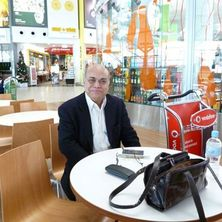
Empowerment of people with disabilities is an important aspect of commitment to human rights and inclusive development.
However, a new study shows the task of reaching out and engaging with people with disabilities to gather and sensitively articulate the lived experiences of people who encounter multiple challenges – physical, social, and cultural – is anything but easy.
University of Queensland PhD graduate Dr Debashis Sarker has published a paper with Adjunct Professor Adil Khan from UQ’s School of Social Science exploring inclusive research with people with disabilities.
Currently a Research Fellow at Torrens University Australia, Dr Sarker said the four-year research project highlighted the challenges, as well as the importance and opportunities, of conducting qualitative research involving people with disabilities – especially in tradition-bound developing countries such as Bangladesh.
“These challenges are particularly daunting in Bangladesh, where disability is also taboo and often seen as a social and economic burden,” Dr Sarker said.
As a result of limited skills and inadequate knowledge of conducting qualitative research on people with disabilities, many researchers end up gathering incomplete information and thus a somewhat limited understanding of the lived experiences of the target group.
This lack of relevant skills and knowledge can result in the absence of these voices in policy discourse, meaning that people with disabilities and their challenges fail to receive the attention they deserve.
“They can end up being neglected and their needs either not addressed at all or addressed inadequately.”
Dr Sarker said when conducting research involving people with disabilities special care must be taken to bridge the power gap between the researcher and the respondents.
“The onus is on the researcher to do everything possible to remove fear, build trust, and, to the extent possible, be at par with the respondent,” Dr Sarker said.
“Our findings revealed that among numerous attributes the key is patience, sensitivity, creativity, and flexibility in reaching out and conducting interviews.”
Another important lesson in locating and reaching out to research participants, namely people with disabilities, is to forge partnerships with organisations that work with them and apply a snowball technique to expand the number of interviewees.
“In tradition-bound societies such as Bangladesh; locating, contacting, and interviewing people with disabilities, especially in rural areas, is difficult without using intermediaries such as the NGOs that work with them that the people with disabilities trust and feel comfortable,” he said.

Professor Khan said research with people with disabilities is complex and time-consuming, but the outcome of a successful project is immensely rewarding and forward-looking.
“Social and economic empowerment of people with disabilities warrant the application of research tools and techniques that empower them to share their lived experiences freely and with confidence,” he said.
People with disabilities living in remote rural areas experience severe exclusion and vulnerabilities. Therefore, it is crucial that researchers reach out to them, talk to them, listen to their stories, and most importantly share their stories so that those stories are heard.
“This is how researchers can contribute to bringing positive changes in society by empowering those people who are made marginalised such as people with disabilities.”
Finally, the study showed qualitative research involving people with disabilities that involves close encounters with and exposure to the challenges they face does affect the researcher emotionally, requiring post-research trauma management of the researcher.



